Photo by JLG Foto
In October 2018, we gathered with nine Artist Educators at Brilliant Detroit to explore what it means to work at the intersection of art and education.
Over the years we’ve seen that oftentimes, artists are working in community without a network of support. For three days we dived into the challenges many Artist Educators face. We also looked at the strategies they use to do this work. It was an outpouring of lessons, and we want to share a few in reflection.
“Being a teaching artist can be isolating because you see only the kids and it’s hard to work with other teaching artists because they’re doing the same thing.”
A space for Artist Educators
Artist Educators work at intersections, not only of art and education, but also organizing, administration, advocacy, design and more. These intersections culminate into one of the greatest strengths of this work and make finding your way to this work difficult. It also makes it hard to find spaces that allow you to improve your craft as an Artist Educator or find peers to have conversations with about where the field is heading.
Many Artist Educators start by doing work in classrooms and communities that is well intentioned. Sometimes the results are good and other times they are harmful to students, to that community and to the artists’ development. Because there is a demand for this work but there aren’t spaces to help people develop into Artist Educators, many artists are given jobs in communities without the skills they need to be successful.
Over these three days we attempted to solve this problem by creating a space for Artist Educators to come together and define what they do, to discover best practices and learn from one another.
Three Days
PIE Lab was made up of three parts. Each day we actively created art together, we explored big questions and we heard from other artists who are doing collaborative creating in their communities.
Photo by JLG Foto
On the first day, we explored how our own training as artists impacts how we show up as facilitators. We acknowledged that many artists are developed in a competitive environment, which is a sharp contrast to the collaborative work of an artist educator. We also heard from Sacramento Knoxx and Raychel Gafford from The Aadizookaan about how and why they use art to organize their community in Southwest Detroit.
On the second day, we identified and refined our purpose as Artist Educators. We worked together to explore how that purpose can impact our facilitation. We also heard from Jova Lynn Vargas about her work balancing a career as a teaching artist, curator and manager of her own personal studio practice.
“Our greatest power lies in our truth. Many times we undercut the potency of what we create to align it with certain standards. Those standards, when they were formed, had nothing to do with our collective well being or wholeness.”
On day three, we sat with Sterling Toles and talked about his approach to making art as a form of collective healing. We then wrapped up by exploring PIE’s approach to media making by creating together.
Across the three days we pulled from the last eight years, where we at People In Education have used media-making as a process of empowerment. We’ve used the creative process to investigate and address the issues in our communities. Media- making isn’t the end goal—it’s the vehicle through which we develop essential skills around connection and curiosity.
This is a growing field, and we hope that our work at PIE Lab can contribute to the development of this practice, of artists creating with and within communities.
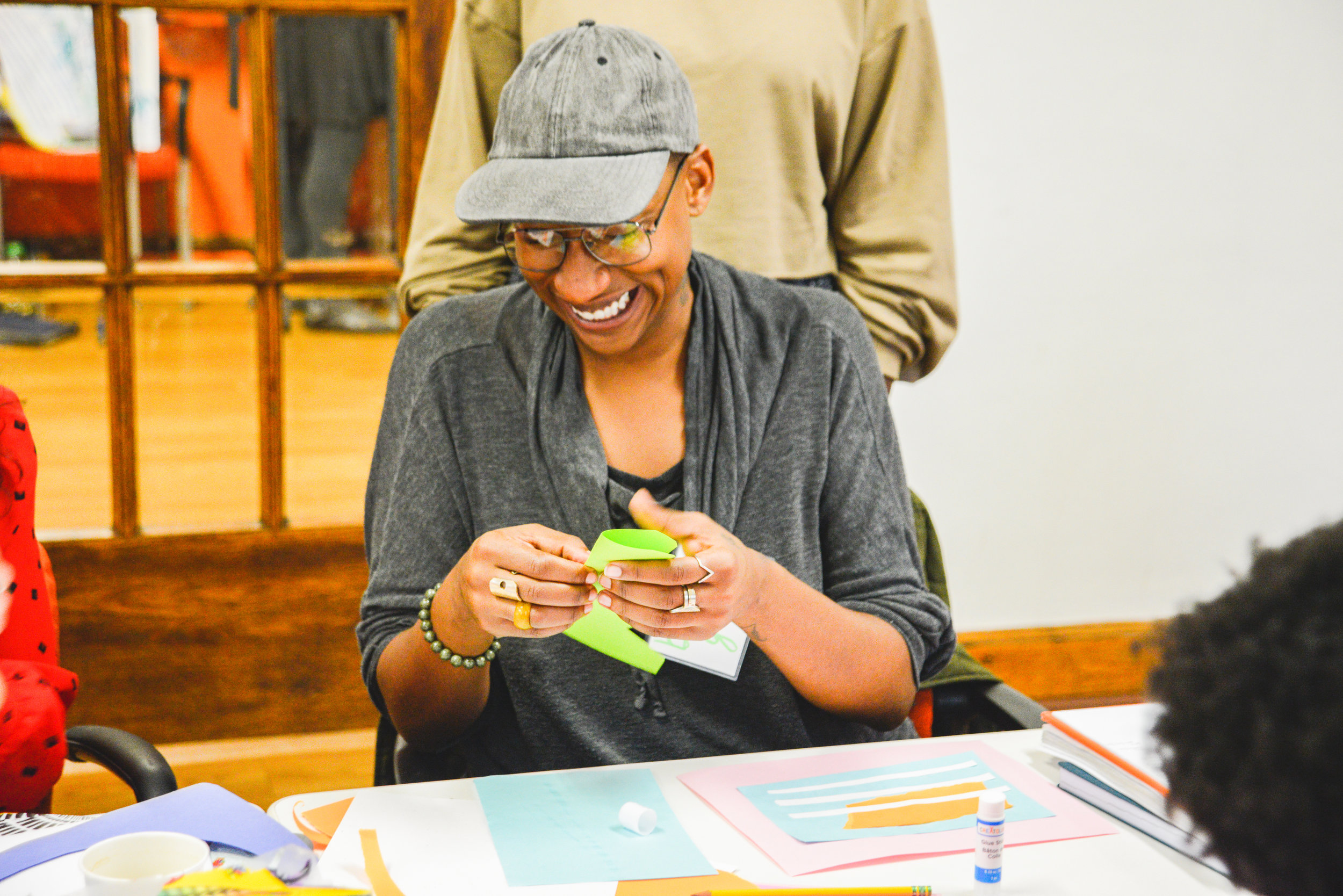
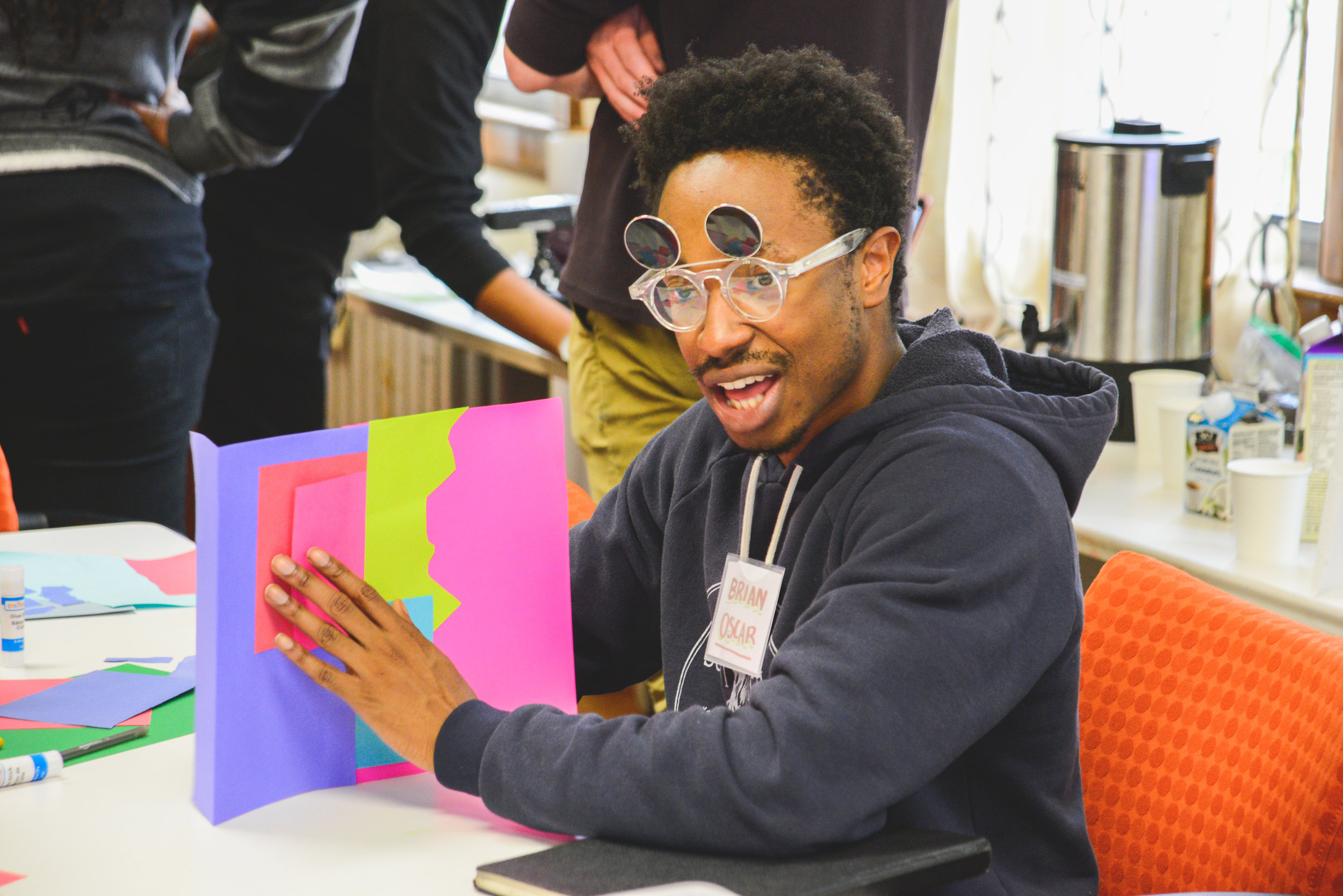
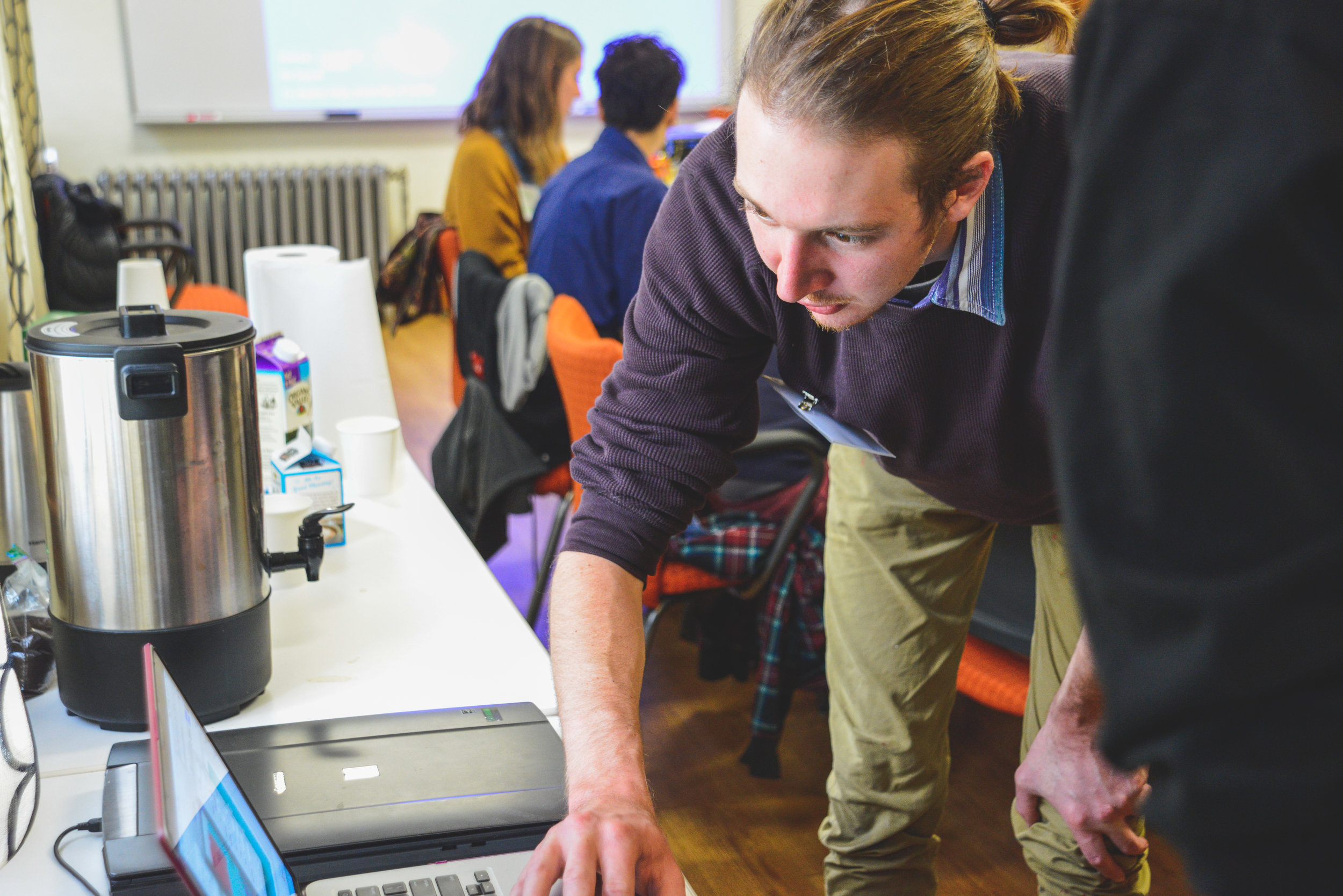
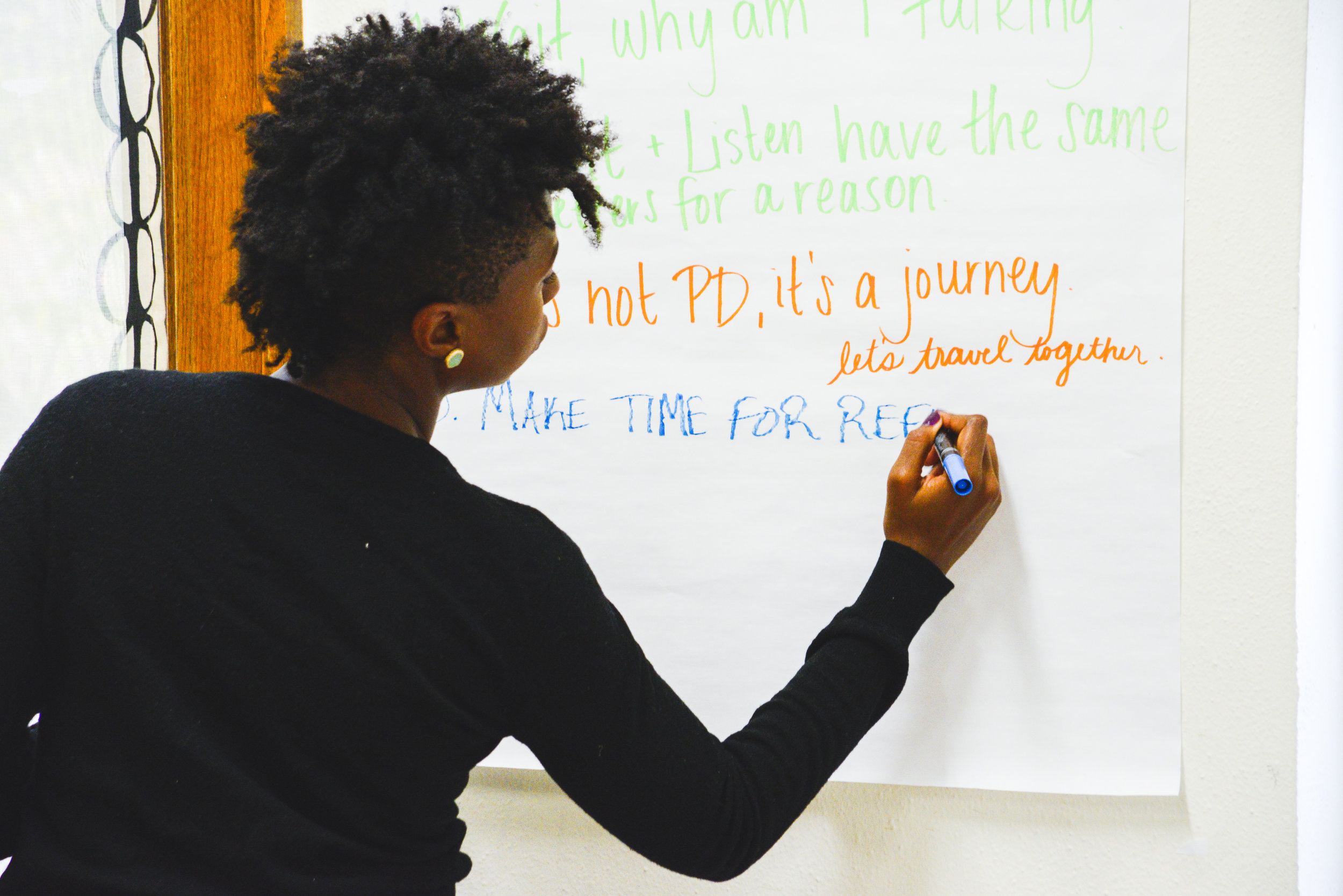
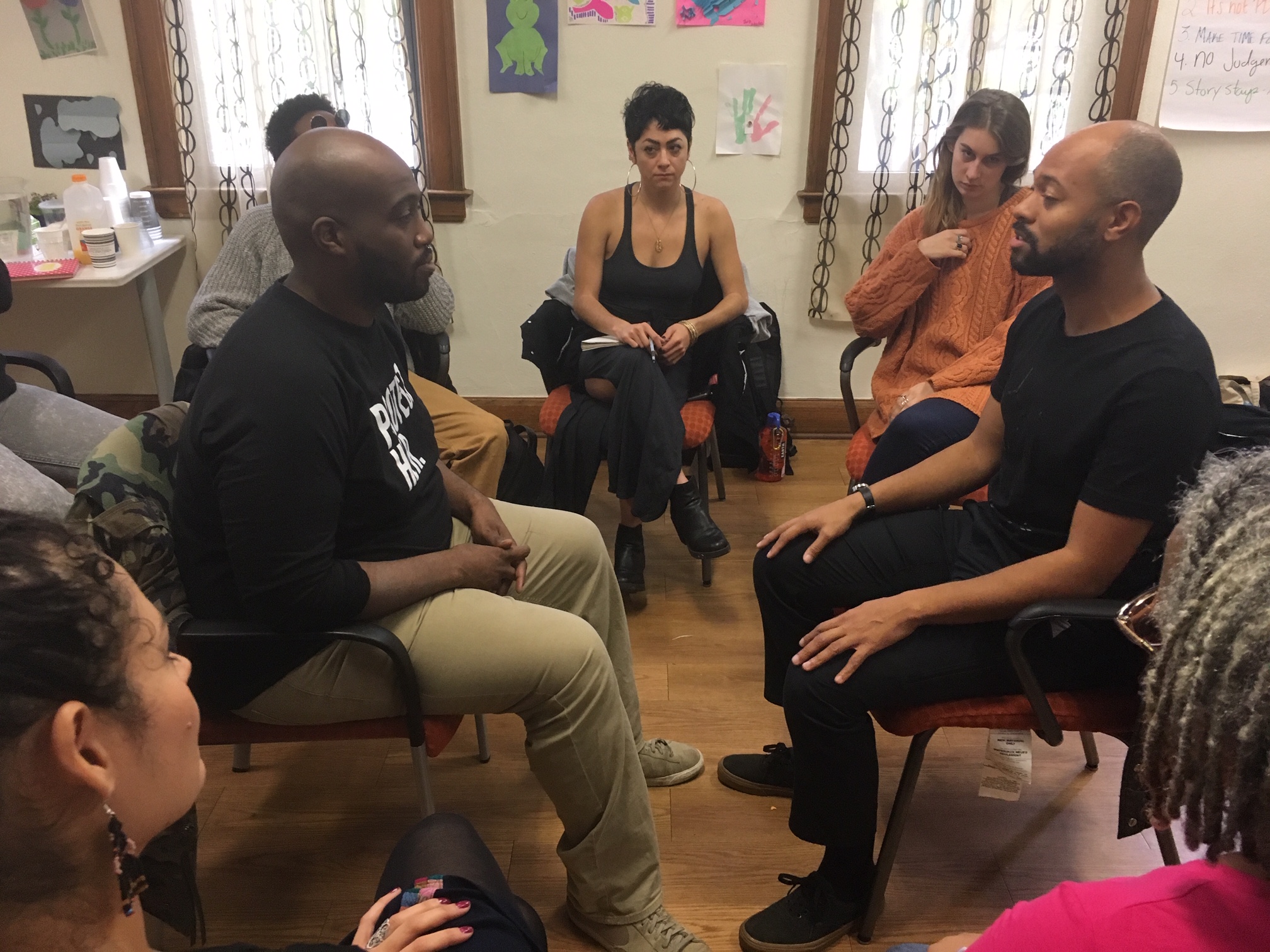
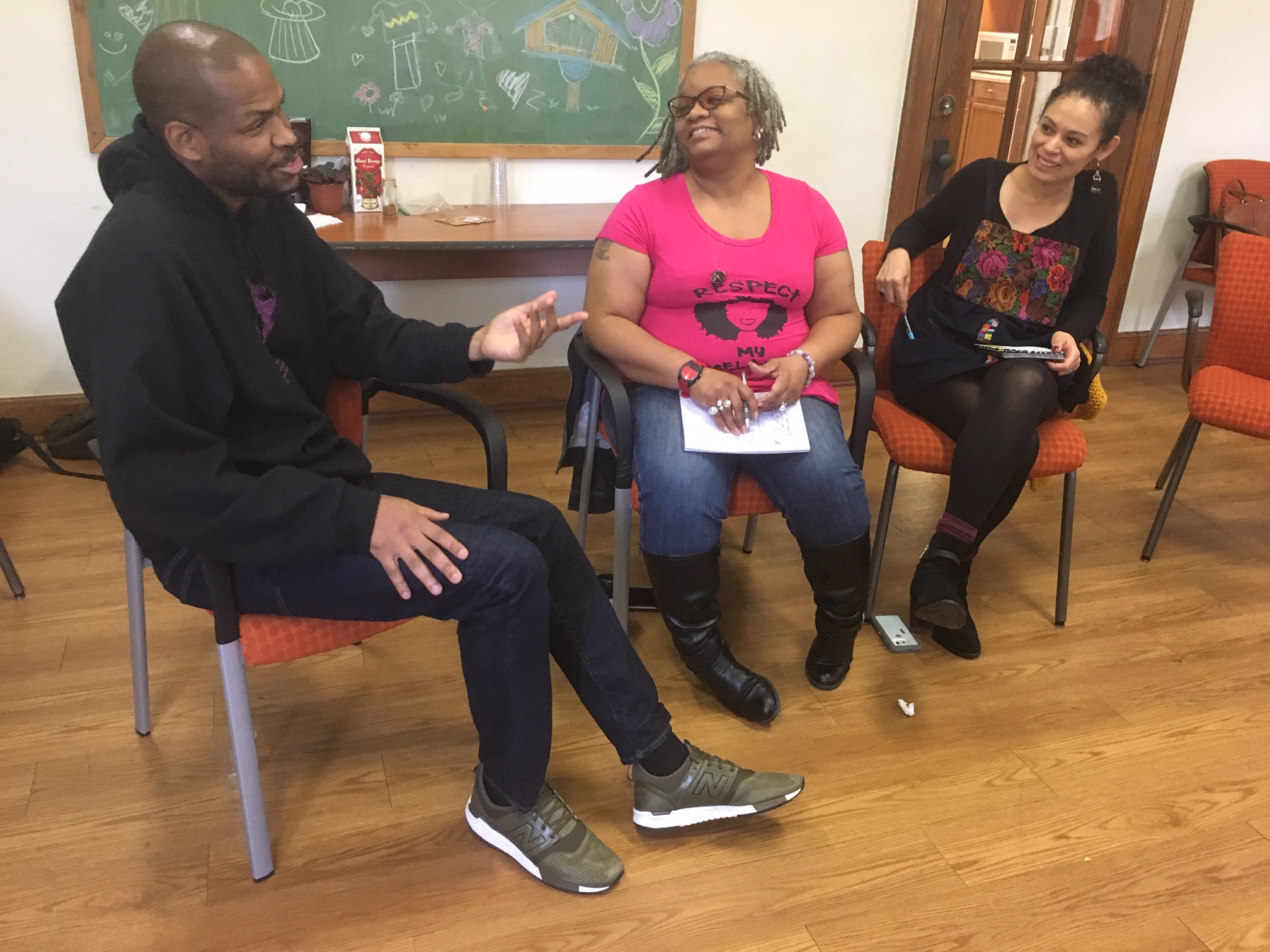
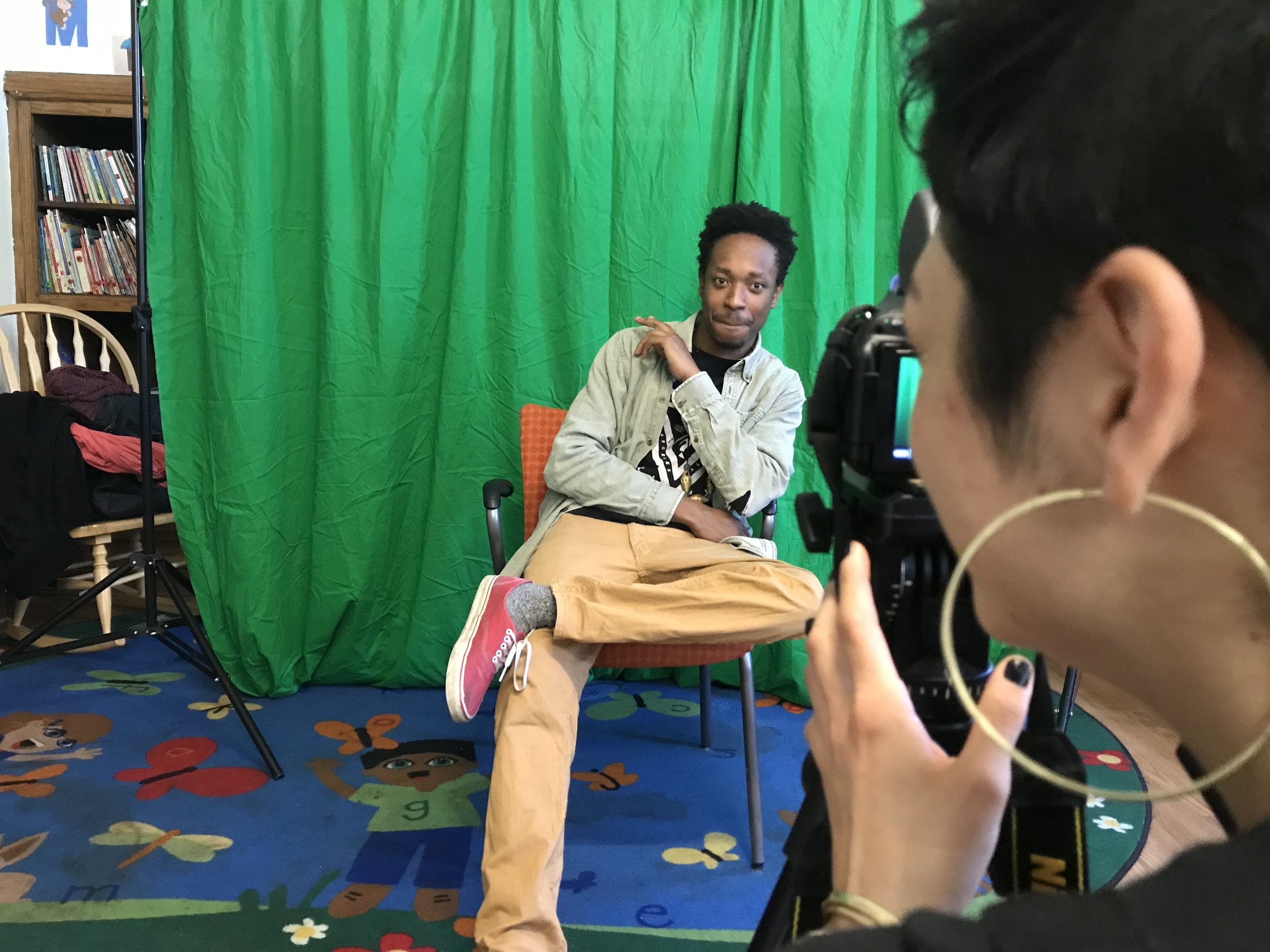
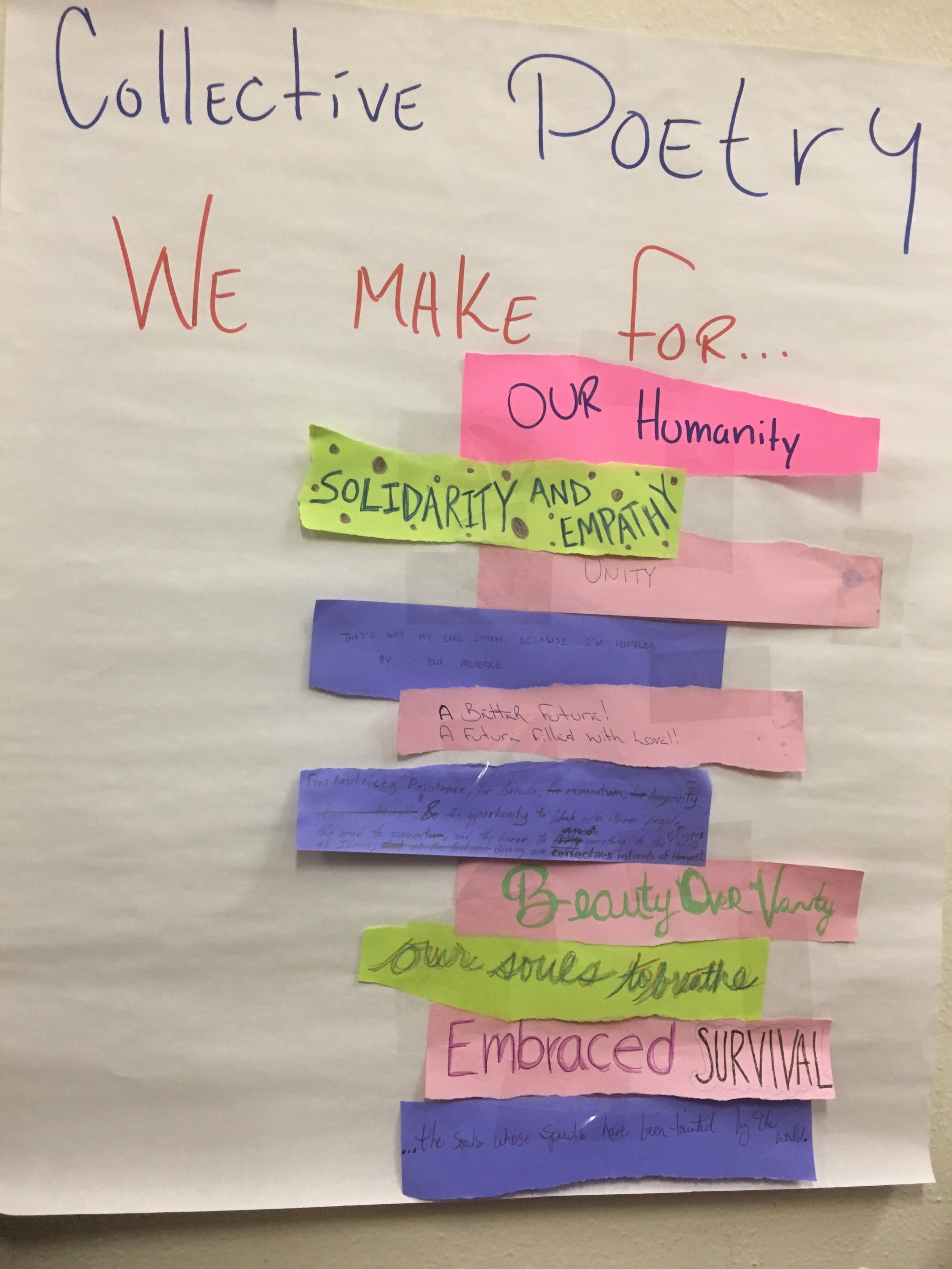
Photos by JLG Foto and Erin Allen
What’s next
November marked the first quarterly meet-up in a series that will provide further professional development opportunities and cultivate a supportive community where artists can troubleshoot challenges and share successes. Starting next year, these meet-ups will continue to take shape according to the inclinations and curiosities of the artists.
A part of this continued convening of PIE Lab participants is an opportunity for them to observe each other’s community work, reflect and offer feedback.
And three PIE Lab participants are a part of our Artist-in-Residence (AIR) program, so stay tuned to see their upcoming work with young people and Detroit education communities around the theme of school lunch.





